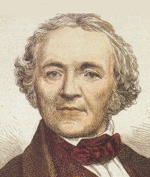Approaching History
The PastHistory is the study of the past. If the past with which we are concerned is recent, like half an hour ago ("Where did the kid put today's paper?"), no very grave theoretical issues arise. You phone up and ask the kid, and you already know what language to do it in. But as we become interested in distant times (the leadership of William Bradford) or alien cultures (the Hittites), more subtle investigative techniques will be required, and the degree of completeness that can be hoped for must be scaled down accordingly.
Some details of the past are gone beyond recovery. The classic example is "what name Achilles took when he went among women." For what can be recovered, we will need skills beyond good observation and contemporary fluency. Some of those skills are mentioned on the following pages.
If found, the past should be reported "as it really was," and not adjusted to suit the present. The past is precisely what does not change under pressure from the present. Different ages may make something different of it, or reshape it to their needs, and they do. Watching them do it is part of watching history happen. But the past itself is not part of that subsequent adjustment or aggrandization process. From the point of view of the past, all that lies in the future. It has not happened yet.
Hence the Ranke maxim:
It is not for the past as a part of the present, but for the past as the past, that man is properly concerned (Diaries, 1814)
and yet more famously:
History has had assigned to it the office of judging the past and of instructing the present for the benefit of future ages. To such high offices the present work does not presume; it seeks only to show the past as it really was" (History of the Latin and German Peoples, 1824)
The ideal here implied is history as report, without any added didactic or inspirational purpose in the telling, and as far as possible not poisoned by didactic or self-gratifying intent in the finding out. This neutrality as to results, along with canons of evidence which we will encounter on later pages, is what is properly meant by "scientific history."
It is sometimes objected that history cannot be "scientific" because it does not "prove" anything; it does not establish "laws" of occurrence. The short answer is: neither does physics. No physical theory is anything but the best current explanation of given phenomena. It is always up for modification or refutation by new data, or a better explanation of the old data. Even in mathematics, which is the nearest approach to a closed system in the sciences, there are unproved conjectures and working assumptions as well as fully deductive propositions. And even the deductive propositions are only true as long as the postulates from which they are derived are true of our universe; this happens not to be the case with that most perfect of all deductive systems, Euclidean geometry. History is scientific in that there are better and worse answers, and rational methods for reaching the better answers, and objective criteria for distinguishing between the two. Science is scientific in just the same way.
Not everyone cares about the past in this sense. There is no need to tempt them with such arguments as "the past is the foreign policy laboratory of the present." Let them go. Our concern is in doing the best job we can for those who do care. And if it turns out that there are exactly six of those, all we need to do is scale back the print order a little bit. Where's the problem?
17 Mar 2006 / Contact The Project / Exit to Outline Index Page
